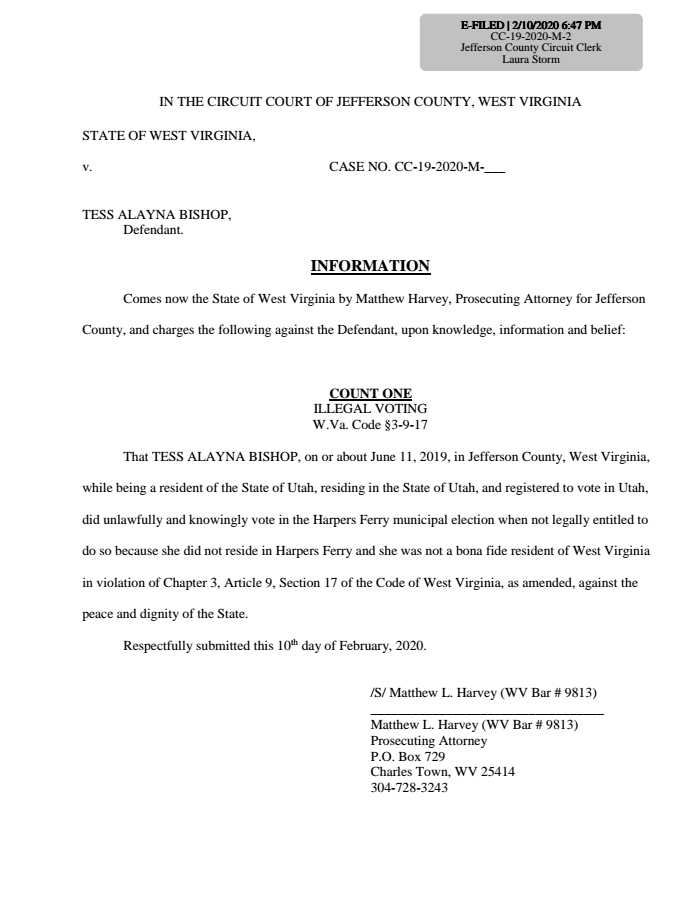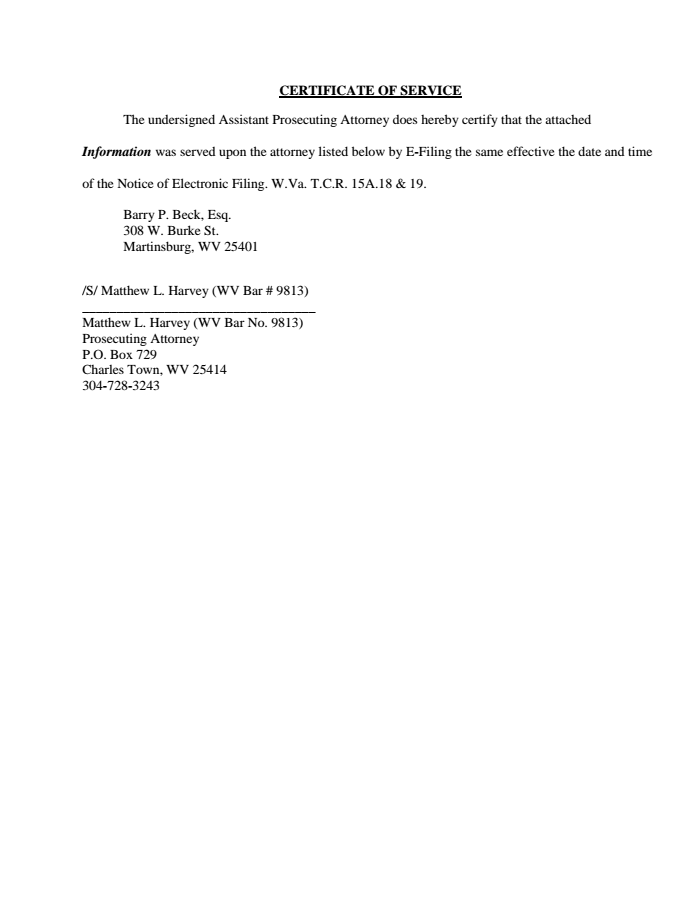CHARLESTON, W.Va. — Harpers Ferry is a town of 280 people with a disputed election headed to the state Supreme Court and a $139 million development project hanging in the balance.
Against that backdrop, the mayor’s daughter is being accused of casting a pivotal vote in last summer’s local election even though she moved to Utah and registered to vote there..
An information detailing the allegations against Tess Bishop, the daughter of Mayor Wayne Bishop, was filed Monday in Jefferson Circuit Court.
Tess Bishop reached a plea agreement late last week, agreeing to community service in lieu of jail time.
Her father won by a wide margin that didn’t require any single vote, but the town council election was close enough that any number of factors — including one vote — could have shaped the council and the policies it pursues.
The court filing accuses Tess Bishop of illegally voting in the June 11, 2019, election “while being a resident of the state of Utah, residing in the state of Utah and registered to vote in Utah.”
Tess Bishop “did unlawfully and knowingly vote in the Harpers Ferry municipal election while not legally entitled to do so because she did not reside in Harpers Ferry and was not a bona fide resident of West Virginia.”


«Page 2 of 2»
This all comes as the small town’s election remains unsettled and on a day when the state Senate considers passage of a bill that would allow state oversight of big development projects in very small towns.
An issue fitting that description, redevelopment of the $139 million Hill Top House hotel in Harpers Ferry, has been a focal point of the local election.
The developers of Hill Top House have said the town of Harpers Ferry isn’t a trustworthy partner, in part because the election remains up for grabs.
A very close town council election in Harpers Ferry has been up in the air since last summer and is headed for review by the state Supreme Court.
Five council positions were up for grabs.
Initially, the results showed five incumbents were the top vote getters. The top candidate got 90 votes and the fifth candidate got 83.
The candidates initially in sixth and seventh place got 82 and 81 votes. Both are viewed as in favor of expediting the Hill Top House project.
Those candidates, Nancy Case and Deborah McGee, have been challenging the results ever since. In particular, they are contesting rulings that four provisional ballots would not be counted.
Those ballots were initially considered to be cast by voters who lived outside the municipal limits. But Case and McGee contend those voters were mistakenly listed in the nearby Bolivar voting district, not Harpers Ferry
That happened, they contend, because of an error that occurred when the four residents registered to vote through the state Division of Motor Vehicles. The mistake placed their home addresses outside the municipality.
The Harpers Ferry Board of Canvassers first took a look at the ballots and declined to count them. Case and McGee then appealed to Harpers Ferry Town Council, serving as an election tribunal. That meant two of the incumbents who could lose their seats heard the appeal.
The Council voted to leave the disputed ballots uncounted, with the town recorder and a councilman dissenting and contending that the situation was being guided by “conflict of interest and political gaming.”
So the two candidates took their case to circuit court in Jefferson County. Judge Debra McLaughlin heard the case Oct. 28 and later issued a 15-page ruling mostly in favor of Case and McGee. The judge ordered a recount, including the disputed ballots.
The same day her decision was reached, lawyers for the majority of council members filed notice of appeal to the state Supreme Court. So Judge McLaughlin ordered a temporary stay.
Story by Brad McElhinny




